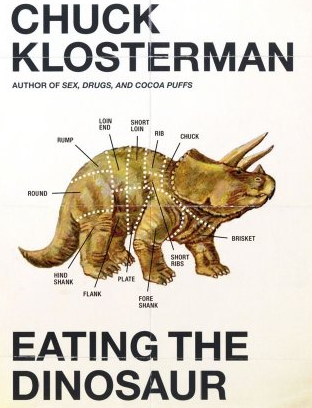In his newest book, Eating the Dinosaur, Chuck Klosterman (my favorite current author) tackles reality, perception and voice. In describing the theme of the book, Klosterman says: "most of the core questions dwell on the way media perception constructs a fake reality that ends up becoming more meaningful than whatever actually happened."
His first essay Something Instead of Nothing concludes with a fitting description of "New Media", it's rise, and our voices / roles within it:
I fear that most contemporary people are answering questions not beacuse they're flattered by the attention; they're answering questions because they feel as though they *deserve* to be asked. About everything. Their opinions are special, so they are entitled to a public forum. Their voice is supposed to be heard, lest tehir life become empty.
This, in one paragraph (minus technology), explains the rise of New Media.
I include this excerpt because it speaks to questions I hear daily: Why do people blog? Why do people post so frequently to Twitter and Facebook? What do people have to say that is important? Now I do not entirely agree with Klosterman because, as he notes, technology does play a significant role in enabling the conversation and, equally importantly, connecting our voices (through relationships, experiences, relevancy, etc). As such, I believe that 'connectedness' is as much of a motivator as ego.

